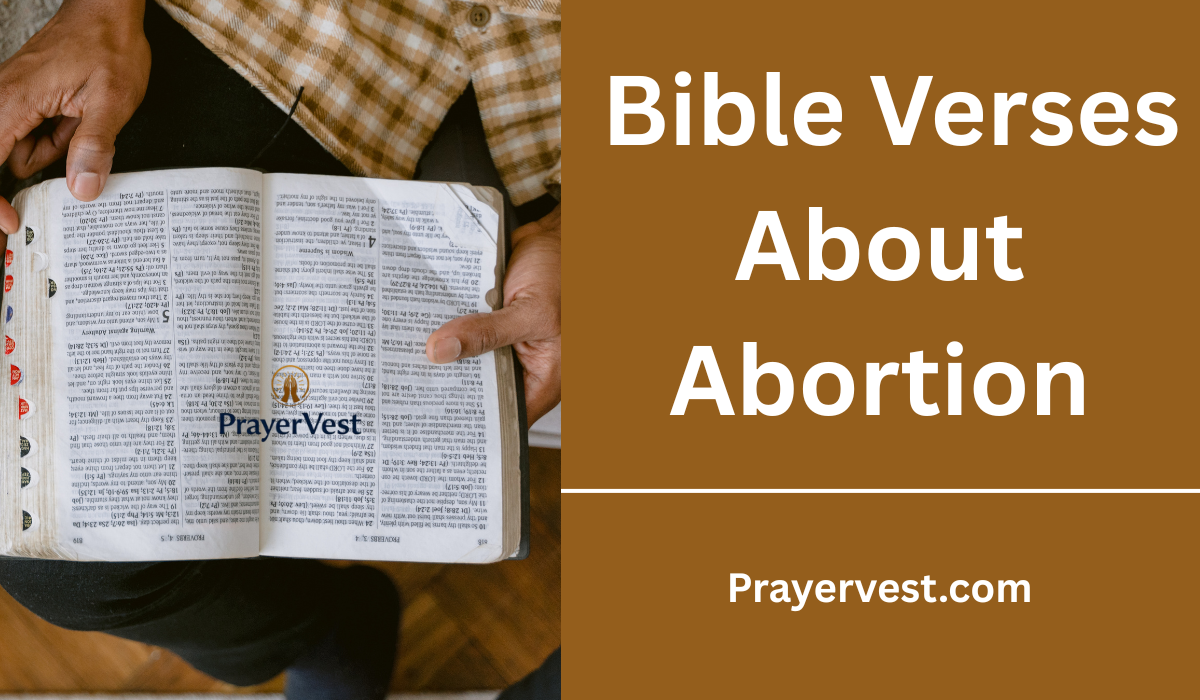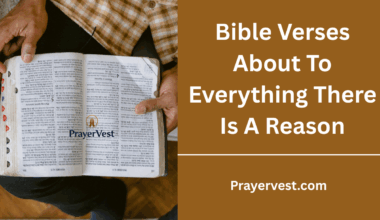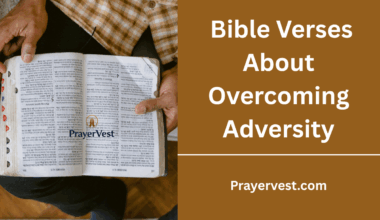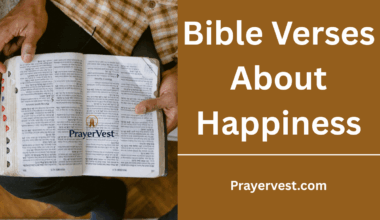Abortion is one of the most delicate and intensely private moral topics of our day. For many religious people, developing a spiritual viewpoint requires knowing what the Bible says about life, its sanctity, and God’s function as Creator.
Despite not specifically mentioning abortion, the Bible reveals important truths about God’s close involvement in the creation of life and His compassion for all people. We witness that life is a divine masterpiece—known, loved, and purposed by God long before birth—from the first few chapters of Genesis to the poetic musings in the Psalms.
God continuously affirms the sanctity of life throughout the Bible. A moral vision based on protection, dignity, and mercy is revealed in verses that discuss His love for the weak, His rule over creation, and His concern for the unborn. Because human life reflects the image of God, it is presented in the Bible as sacred (Genesis 1:27).
Every life is “fearfully and wonderfully made,” woven together by the Creator with love and purpose, as verses such as Psalm 139:13-16 tell Christians. These passages provide us consolation as well as theological understanding—a reminder that all people, regardless of age or stage, are valuable in God’s eyes.


However, the message of Scripture also includes the prospect of redemption in addition to moral judgment. The Bible has a lot to say to people who are struggling with regret, anguish, or uncertainty about abortion. God’s heart is always open to those who seek healing, His forgiveness is limitless, and His grace is abundant. The weight of human life and God’s immense mercy—a love that restores, renews, and calls each of us to maintain life with compassion and conviction—are both revealed to us as we examine Bible scriptures about abortion.
40 Powerful Bible Verses About Abortion (2026)
1. Psalm 139:13-14
“For you created my inmost being; you knit me together in my mother’s womb. I praise you because I am fearfully and wonderfully made; your works are wonderful, I know that full well.”
David’s intimate reflection on God’s creative work in the womb powerfully affirms the sanctity of life from conception. The imagery of God’s hands “knitting” life together reveals divine intentionality and purpose behind every human existence. This verse anchors the belief that life is sacred and begins under God’s loving craftsmanship, not human control.
2. Jeremiah 1:5
“Before I formed you in the womb I knew you, before you were born I set you apart; I appointed you as a prophet to the nations.”
This profound declaration to Jeremiah reveals God’s foreknowledge and preordained purpose for every human being, even before birth. It demonstrates that life carries divine intention long before physical existence. In the context of abortion, it reminds us that every life—no matter how small—is known, valued, and purposed by God.
3. Isaiah 49:1
“Before I was born the Lord called me; from my mother’s womb he has spoken my name.”
The prophet Isaiah testifies to God’s call and recognition from within the womb, reinforcing the belief that God’s relationship with humanity begins at conception. This verse portrays divine intimacy—God’s voice reaching into the womb, calling each life by name. It affirms the preciousness and individuality of every unborn soul.
4. Luke 1:41-44
“When Elizabeth heard Mary’s greeting, the baby leaped in her womb, and Elizabeth was filled with the Holy Spirit… the baby in my womb leaped for joy.”
This powerful moment between Mary and Elizabeth reveals divine life and spiritual awareness in the unborn. John the Baptist, still in the womb, reacts to the presence of Christ—showing recognition, joy, and spiritual vitality. This passage emphasizes that life within the womb is not mere potential but a sacred reality, responsive to God’s Spirit.
5. Job 31:15
“Did not he who made me in the womb make them? Did not the same one form us both within our mothers?”
Job’s reflection points to the equality and shared origin of all humans under God’s creative hand. Every person—born or unborn—is fashioned by the same Creator. This verse dismantles any hierarchy of worth and calls us to see the unborn as fellow creations of God’s design, deserving of care and dignity.
6. Psalm 22:9-10
“Yet you brought me out of the womb; you made me trust in you, even at my mother’s breast. From birth I was cast on you; from my mother’s womb you have been my God.”
David’s testimony of divine presence from conception underscores a lifelong relationship with God that begins before birth. It presents a theology of dependence and belonging that starts in the womb—affirming that every life, no matter how fragile, is under God’s care from the very beginning.
7. Exodus 23:7
“Do not put an innocent or honest person to death, for I will not acquit the guilty.”
This command underscores God’s fierce protection of innocent life. While not directly addressing abortion, it establishes a moral framework against shedding innocent blood. It reminds us that God’s justice extends to all who cannot defend themselves—including the unborn.
8. Deuteronomy 30:19
“This day I call the heavens and the earth as witnesses against you that I have set before you life and death, blessings and curses. Now choose life, so that you and your children may live.”
This divine appeal to “choose life” is a timeless moral directive. God sets before humanity the power to decide between life and destruction, urging us toward the path that sustains generations. It’s a call not only to affirm life but to protect it as sacred gift.
9. Isaiah 44:24
“This is what the Lord says—your Redeemer, who formed you in the womb: I am the Lord, the Maker of all things.”
Here, God asserts His authorship over life from the moment of conception. He is not a distant observer but the intimate Creator, shaping and sustaining life in the hidden place of the womb. This truth frames all human life as a divine act deserving reverence.
10. Psalm 127:3
“Children are a heritage from the Lord, offspring a reward from him.”
This verse celebrates children as divine blessings, not burdens. It reframes how we view conception, pregnancy, and birth—as sacred trust and divine gift. God’s view of life is generous and life-affirming, reminding us that every child is a manifestation of His goodness and love.
11. Genesis 1:27
“So God created mankind in his own image, in the image of God he created them; male and female he created them.”
This foundational truth declares that every human bears the *imago Dei*—the image of God. From the earliest moment of existence, life carries a divine imprint and intrinsic worth. This verse dismantles the notion of disposable humanity, affirming that each soul—born or unborn—reflects divine beauty and purpose.
12. Genesis 2:7
“Then the Lord God formed a man from the dust of the ground and breathed into his nostrils the breath of life, and the man became a living being.”
The divine breath animating Adam signifies God’s direct involvement in the gift of life. This sacred act reveals that life itself is not a human achievement but a divine endowment. Every heartbeat and breath—whether within the womb or outside it—carries the evidence of God’s sustaining presence.
13. Exodus 21:22-23
“If people are fighting and hit a pregnant woman and she gives birth prematurely but there is no serious injury, the offender must be fined… But if there is serious injury, you are to take life for life.”
This passage establishes legal recognition of the unborn within the ancient moral code. It upholds accountability for harm caused to a developing child, reflecting God’s regard for life in the womb. The verse lays an ethical foundation for valuing and protecting the most vulnerable.
14. Psalm 8:4-5
“What is mankind that you are mindful of them, human beings that you care for them? You have made them a little lower than the angels and crowned them with glory and honor.”
This psalm reveals the staggering dignity bestowed upon humanity. Even in its smallest and most dependent form, human life is crowned with divine honor. The unborn are not insignificant—they share in this sacred value, being formed under the gaze of divine mindfulness.
15. Isaiah 46:3–4
“Listen to me, you whom I have upheld since your birth, and have carried since you were born. Even to your old age and gray hairs I am he who will sustain you.”
God’s care spans from the womb to old age, proving His unbroken commitment to human life. He carries, sustains, and preserves every soul through every stage of existence. This truth rejects the idea that life’s earliest moments are less sacred; divine care begins before our first cry.
16. Job 10:11-12
“You clothed me with skin and flesh and knit me together with bones and sinews. You gave me life and showed me kindness, and in your providence watched over my spirit.”
Job poetically acknowledges God’s intimate craftsmanship in his formation. Each cell, bone, and sinew is a testament to divine artistry. This verse affirms that life is both physical and spiritual, intricately designed under the watchful care of a loving Creator.
17. Matthew 18:10
“See that you do not despise one of these little ones. For I tell you that their angels in heaven always see the face of my Father in heaven.”
Jesus’ words extend divine protection and dignity to children, declaring their eternal worth before God. The unborn, too, belong among the “little ones” whose value Heaven defends. This verse calls for compassion, reverence, and advocacy for every vulnerable life.
18. Matthew 19:14
“Jesus said, ‘Let the little children come to me, and do not hinder them, for the kingdom of heaven belongs to such as these.’”
Christ’s invitation reveals His tender heart toward children and by extension, all innocent life. He affirms that the Kingdom of Heaven is shaped around their purity and worth. It is a divine reminder that every child—born or unborn—belongs first to God.
19. Isaiah 57:15
“I live in a high and holy place, but also with the one who is contrite and lowly in spirit, to revive the spirit of the lowly and to revive the heart of the contrite.”
This verse offers comfort to those carrying pain, regret, or grief related to abortion. God’s holiness does not distance Him; it draws Him near to the brokenhearted. He revives those who feel unworthy, offering healing and forgiveness to all who turn toward His mercy.
20. 1 Samuel 1:27-28
“I prayed for this child, and the Lord has granted me what I asked of him. So now I give him to the Lord.”
Hannah’s joyful declaration celebrates answered prayer and the sacred trust of motherhood. Her gratitude underscores the truth that every child is a gift from God, not merely a biological event. This passage invites us to treasure life as holy stewardship.
21. Ecclesiastes 11:5
“As you do not know the path of the wind, or how the body is formed in a mother’s womb, so you cannot understand the work of God, the Maker of all things.”
The mystery of life’s formation testifies to divine wisdom beyond human comprehension. The hidden process within the womb is an act of God, veiled in wonder. This verse reminds us that life’s beginnings are sacred mysteries—beyond our right to interrupt or control.
22. Psalm 71:6
“From birth I have relied on you; you brought me forth from my mother’s womb. I will ever praise you.”
This verse celebrates lifelong reliance on God beginning at birth. It suggests that God’s sustaining grace operates even before awareness, weaving divine purpose into human existence from the womb onward. Life is never independent—it’s continuously upheld by God.
23. Proverbs 31:8-9
“Speak up for those who cannot speak for themselves, for the rights of all who are destitute. Speak up and judge fairly; defend the rights of the poor and needy.”
This call to justice extends profoundly to the unborn, the voiceless among us. God calls His people to be defenders of life—to speak, act, and advocate on behalf of those who cannot defend themselves. Compassion becomes the voice of divine righteousness.
24. Matthew 10:29-31
“Are not two sparrows sold for a penny? Yet not one of them will fall to the ground outside your Father’s care… So don’t be afraid; you are worth more than many sparrows.”
Christ’s assurance of divine care even for sparrows emphasizes God’s intimate attention to all creation. How much more valuable are human lives, including the unborn? This verse reveals the immeasurable worth of every person in God’s eyes.
25. Romans 12:15
“Rejoice with those who rejoice; mourn with those who mourn.”
This verse calls for deep empathy and community care. In conversations about abortion, it invites the Church to be both truthful and tender—to grieve with the broken, comfort the hurting, and extend grace without judgment. Compassion is a moral imperative.
26. 2 Samuel 12:23
“But now that he is dead, why should I go on fasting? Can I bring him back again? I will go to him, but he will not return to me.”
David’s lament over his infant son carries profound hope. Though grief remains, he believes in ultimate reunion with the child. This verse speaks peace to those mourning a lost child—whether by miscarriage, abortion, or tragedy—affirming that God’s mercy bridges every separation.
27. John 10:10
“The thief comes only to steal and kill and destroy; I have come that they may have life, and have it to the full.”
Jesus defines His mission as one of life and abundance. His Kingdom resists all forces that diminish or destroy life. This verse proclaims that God’s will is always life—full, flourishing, and eternal.
28. Deuteronomy 5:17
“You shall not murder.”
This simple yet profound command anchors the moral sanctity of life. It’s a divine safeguard ensuring that human existence is treated as sacred, never subject to convenience or control. It’s not merely prohibition—it’s protection of God’s creative order.
29. James 1:27
“Religion that God our Father accepts as pure and faultless is this: to look after orphans and widows in their distress…”
True faith expresses itself through compassion. This verse challenges believers to respond not only with conviction but with care—supporting vulnerable mothers, families, and children. God’s heart for justice always manifests in tangible love.
30. Psalm 116:15
“Precious in the sight of the Lord is the death of his faithful servants.”
Even in loss, God sees life as precious. His compassion surrounds every moment of sorrow and regret. This verse assures us that God values every soul infinitely, including those lost before birth, and offers eternal rest in His love.
31. Isaiah 49:15
“Can a mother forget the baby at her breast and have no compassion on the child she has borne? Though she may forget, I will not forget you!”
This tender verse portrays divine compassion exceeding even maternal love. God never forgets or forsakes any of His creations—including the unborn. His memory and mercy extend beyond human frailty, embracing both mother and child in unending grace.
32. Psalm 51:10
“Create in me a pure heart, O God, and renew a steadfast spirit within me.”
David’s prayer for renewal applies powerfully to those seeking forgiveness after abortion. God’s cleansing power restores purity and peace where guilt once reigned. Redemption is not only possible—it’s promised to the repentant heart.
33. Micah 6:8
“He has shown you, O mortal, what is good. And what does the Lord require of you? To act justly and to love mercy and to walk humbly with your God.”
God’s moral vision balances justice, mercy, and humility. In matters of life and abortion, this verse invites believers to hold truth with tenderness—to stand for life while walking humbly, guided by love rather than condemnation.
34. 1 Corinthians 6:19-20
“Do you not know that your bodies are temples of the Holy Spirit… You are not your own; you were bought at a price.”
This verse reframes bodily autonomy in divine terms. Our bodies are sacred spaces indwelt by God Himself. Every life—mother and child alike—belongs to the Lord, cherished and redeemed through Christ’s sacrifice.
35. Galatians 6:2
“Carry each other’s burdens, and in this way you will fulfill the law of Christ.”
God calls His people to share one another’s struggles. This includes walking beside women facing fear, crisis, or regret. True Christian compassion doesn’t condemn—it carries, comforts, and restores through love and presence.
36. John 3:17
“For God did not send his Son into the world to condemn the world, but to save the world through him.”
This verse centers the message of grace in the conversation about abortion. God’s desire is restoration, not rejection. His heart beats for every wounded soul, offering salvation and healing through Christ’s redeeming love.
37. Romans 8:1
“Therefore, there is now no condemnation for those who are in Christ Jesus.”
Freedom from condemnation is the cornerstone of the Gospel. For those burdened by past choices, this verse is liberating truth—Christ’s forgiveness removes shame, replacing it with peace and renewed purpose.
38. Isaiah 1:18
“Though your sins are like scarlet, they shall be as white as snow; though they are red as crimson, they shall be like wool.”
God’s grace transforms even the deepest guilt into purity. This verse assures us that no sin, including abortion, lies beyond His cleansing power. Divine mercy restores dignity where despair once lived.
39. Revelation 21:4
“He will wipe every tear from their eyes. There will be no more death or mourning or crying or pain.”
The promise of eternal healing speaks to those who mourn. God’s future includes complete restoration—no pain, no loss, only peace. Every tear of regret or grief will one day be tenderly wiped away by His own hand.
40. Psalm 34:18
“The Lord is close to the brokenhearted and saves those who are crushed in spirit.”
This verse closes the message with divine compassion. God draws near to those burdened by sorrow or regret. His nearness is healing, His love redemptive. Even in our deepest pain, His mercy brings hope and new beginnings.
Conclusion
Finally, the Bible reminds us that all people are fearfully and wonderfully created by God, providing a clear and loving view of the sanctity of life. Scripture encourages believers to value life as a holy gift by confirming His close involvement in creation, from the womb to the globe. These verses speak to the heart of a loving Creator who treasures every soul He creates, in addition to the worth of the unborn. The message of the Bible is one of truth, mercy, and grace rather than condemnation; it offers hope despite difficult choices and regrets from the past.
Furthermore, the Bible tells us that anybody who seeks God’s forgiveness can always get it. God offers peace, healing, and restoration to those who are dealing with the psychological or spiritual fallout from an abortion. His teachings promote repentance as a means of achieving rejuvenation rather than as a burden. A fresh start, guilt relief, and heart healing are all possible with faith in Christ. In the end, these verses serve as a reminder that, just as life is holy, so is the breadth of God’s love and His intention to repair and redeem everyone who approaches Him.





